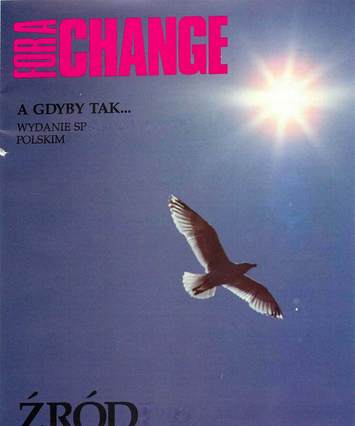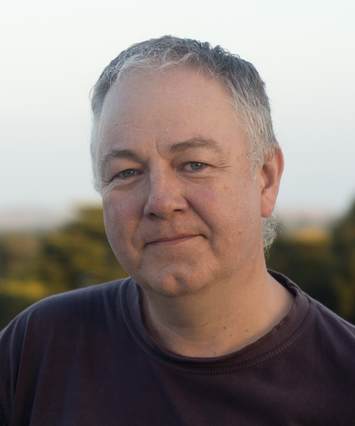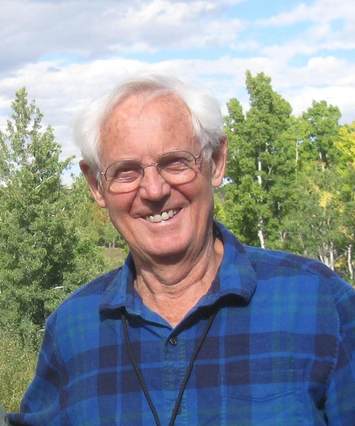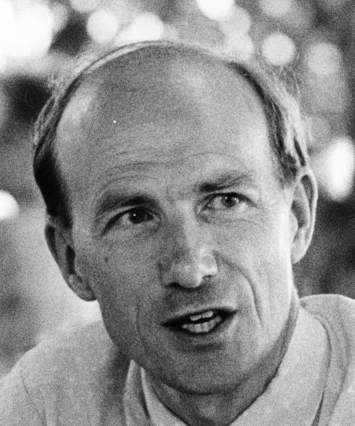Esta publicación también existe en:
CONTENTS
Brian Hamlin. Moral Re-armament and Forgiveness Between Nations
This article tells the story of Moral Re-armament, from Frank Buchman to the early '90s. The author describes his own experience with the ideology of Moral Re-armament, and shows real-life examples of reconciliation between nations: France and Germany, Japan and its neighbors, stories of reconciliation in Africa, Latin America, India, Lebanon.
Michael Brown. Meetings in the Swiss Alps (report)
An account of how a conference in Co. in the summer of 1990 brought participants from Eastern Europe and the USSR for the first time. For people who had lived behind the Iron Curtain for more than 40 years, this was the first experience of open communication with each other and with representatives from all continents. The author shows how deeply the Poles, Russians, Hungarians, East and West Germans were impressed by life and communication in Ko. Many Eastern Europeans realized for the first time "a moral engagement with events in their own country," as well as a sense of being part of humanity.
John Lester. Ireland and the English Question
The author writes about the personal awareness of British responsibility for terrorism in Northern Ireland and the need for repentance. The article details the history of relations between England and Ireland over the centuries. The author very honestly analyzes his own attitude toward the Irish and the inner journey of healing from arrogance and hatred.
Leif Hovelsen. "Still Fighting for Democracy.
A short essay by Norwegian Leif Hovelsen on Yugoslav politician, dissident, writer, and former political prisoner Milovan Djilas, author of The New Class:
"My argument with the party arose because I realized that ideas, in and of themselves, do not make people great or insignificant; the means they use make them so."
Michael Law. "Right or wrong, it's my people."
The collapse of the communist regimes in Eastern Europe and the USSR exposed all the national contradictions, conflicts, and hatreds that had previously been dormant. The author tries to find a way out of the vicious circle of mutual claims and disagreements.
Jim Sutton. I Plotted Murder.
in the personal experience of getting rid of hate, repentance and reconciliation with the enemy
Vera Lashkova on her faith in God.
A Soviet dissident, imprisoned and exiled by the famous Process of Four, shares in an interview her experience of Orthodox faith, her experience of life in prison, and her views on the place of church and faith in society.
Hasan Huseynov. Let's try to talk soberly.
Reflections on the responsibility of man for his people and society, on the danger of totalitarianism recurring in the former USSR, and on the moral foundations of democracy.
Vladimir Zelinsky. Alien guilt
The Soviet Union collapsed, but its heavy legacy and its crimes remain. Who is to blame for them? Who is responsible for the Soviet past? Whose grievances are heavier? How to find a way out of mutual hatred, how to learn to be first and foremost a human being, not a member of your nation?
Denis Dragunsky. Will we learn a foreign language?
Will the language of nonviolence become the language of everyday life in the post-Soviet space?
Denis Dragunsky: "...now the hero is the one who will be able to oppose violence with good will, who is able in the name of future not to respond to violence, who will be the first to stick a bayonet in the ground. ... This, however, requires a much greater fortitude than to continue the conflict."
Christian Delorme. Continuing to identify one's differences
On dialogue between religions as an alternative to fundamentalism and bloodshed: "...The future of the whole world depends chiefly on dialogue between different faiths."
In Auschwitz my hatred ended
Aniela Stepan and her husband Olgerd recount their lives as Polish exiles born in Western Ukraine, exiled to Siberia for work, ended up in Palestine, and eventually became active figures in the Polish Catholic community in Europe. Anelie's account of her experience of revelation and rebirth during her visit to the Auschwitz Museum is particularly striking.
Ruso





